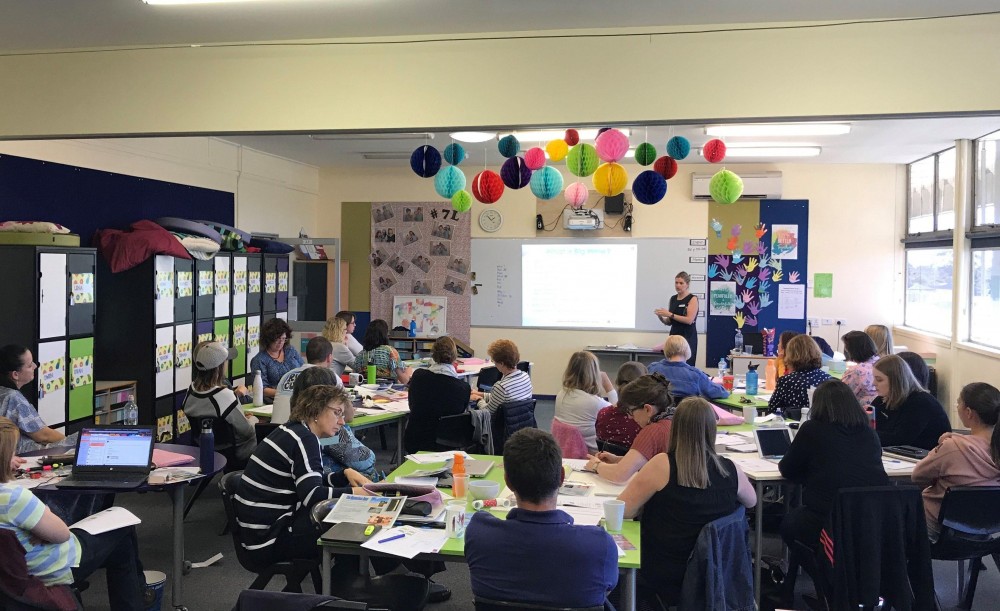So what do Teachers do on a Student Free Day?
Junior School teachers returned on Monday of Week 1 to be greeted by an internationally acclaimed presenter who had arrived to speak about the 'Big Write' approach to teaching writing in the Junior School. We spent the day focussing on ways to enrich and maximise the teaching of literacy at Emmaus Christian College.
As I moved in and out of the Junior School on the students’ first day of school, it was a joy to hear the buzz of conversation by teachers, reflecting on what they were going to put into practice over the coming year, from our PD the day before.
I thought you may be encouraged and inspired to hear what staff shared with me as I buzzed around to ask them:
"What was the best thing about Monday’s Professional Learning?"
- It emphasized the importance of oral language; for children to become good writers, oral language needs to be a big focus in our teaching and learning. It encouraged us to think more about warm up activities for literacy. We need to be realistic in our literacy block about what a child can immediately jump into, and how we as teachers can lead them into that through warm ups, to maximise their learning.
- It was interesting to hear about research and statistics that reveal children naturally regress after the Christmas break, and as a result, teachers need to be very aware of reviewing and building skills through warm up tasks in the first few weeks of school. This is important preparation prior to teaching new information. The importance of identifying prior knowledge upon which to teach new learning is critical.
- It offered ideas for setting up display boards in the classroom that encourage children to focus on the components of Vocabulary, Connectors, Outstanding Openers and Punctuation. The best thing is being able to immerse the children in each of these components, one at a time, so they can become part of daily practice. We always do warm up games in Maths… We have been reminded that warm up games in Literacy are just as important!
- It outlined a helpful structure to the teaching of ‘Big Write’. All the information that accompanied the outline was very helpful: introducing the topic the day before children are asked to write, children talking about ideas, using background music, completing one piece of writing in one lesson. Very motivating for the teacher!
- It offered clear, concise, practical information, with easy steps to follow on how to implement as a whole class and in small groups. It makes the text they are being immersed in ‘come alive’.
- It reiterated the importance of using prior knowledge. It was excellent to hear, as a professional teacher, the best thing we as teachers can use and tap into is prior knowledge. This emphasizes the importance of allowing students to talk.
- It was immediately accessible to us as teachers for use in the class room.
- It affirmed teaching strategies already being embraced and added lots of ideas for new activities.
- It promoted a love of literacy and words.
- It offered strategies for teaching children how to develop a love for writing.
- It offered a wealth of fresh new warm up games to switch children on and make literacy fun; a quick and efficient use of time to increase vocabulary.
- I am looking forward to applying this in the classroom!
You may hear your children talk about 'wow' words or about using vocabulary reflective of the words highlighted above. They may even talk about warm up games they have played at school. If they ask you as part of their homework, to help them reflect on a topic they are going to write about the next day, you will know why!
Blessings,
Helen Vonow
Head of Junior School

